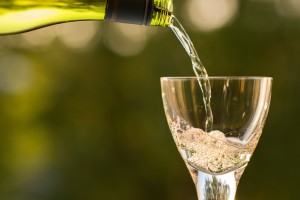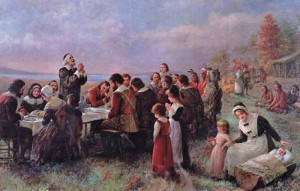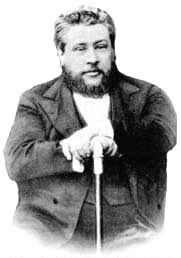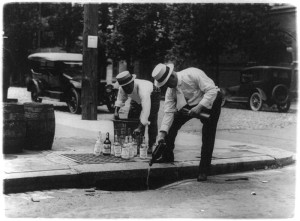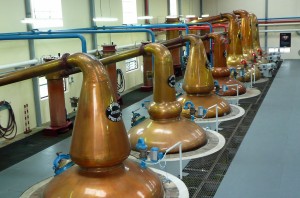On Drinking
I grew up in a home where drinking alcohol was viewed as something evil, abhorrent, to be avoided at all costs. It wasn’t an attractive temptation to be resisted, it was repulsive. I remember seeing my father find a discarded beer can on our front yard, and he didn’t even want to touch it. He gingerly got it into the trash can like you might dispose of a dead squirrel. Behind that attitude was a knowledge of the devastating consequences of alcoholism, which is indeed evil, abhorrent, and to be avoided at all costs.
In the 60’s most of evangelical Christianity agreed with my parents, from what I remember. Social drinking among Christians was rare, a sure way to raise suspicions of backsliding and worldliness. At my Christian college only the biggest of rebels would sneak out for a drink, and there was no thought that it might be somehow appropriate. Evangelicals were divided into two camps, the prohibitionists who believed that any amount of alcohol was a moral wrong, and the abstentionists who thought it was simply unwise. Either way, Christians didn’t drink.
As a result, I don’t think I have ever had a drink of an alcoholic beverage in my life. There is a bit of alcohol in some cough syrups, I know. There may have been a dish or two in a restaurant that was cooked with alcohol. We were in a communion service once where the sip of grape juice turned out to be wine. But to grab a beer or take a glass of wine with dinner? It’s never happened, and it most likely never will. The fact that my employer and my church’s covenant both forbid it are additional barriers.
I think I remember my father saying, “if you never take your first drink, you will never get drunk.” It is a guarantee you will never be an alcoholic. Protecting your children from that possibility, making it unattractive to them, is not a bad legacy to leave them. I am thankful to my parents for that. I know that “we’ve always done it that way” is not a compelling basis for a personal conviction (although it ought to carry a lot of weight when “we” is your parents). However, the logic above is fairly compelling to me.
I was reminded of this recently when I applied for a new life insurance policy. Smoking and drinking are standard health questions because they both dramatically reduce life expectancy. It is satisfying to be able to say “never” to both questions.
In recent years the media has made much of research showing that modest alcohol consumption might have some slight health benefits. Insurance companies know that the modest benefits must be balanced with the dramatic risks of even moderate consumption. A bit of alcohol might add a few months to your life expectancy, alcoholism drops your life expectancy by 10-12 years. Whatever your good intentions, the numbers don’t lie, and the insurance company is right to be suspicious.
None of the above directly involves any theology; it is simply a matter of wise living. The Bible suggests as much in verses like Proverbs 20:1, “Wine is a mocker, strong drink is raging: and whosoever is deceived thereby is not wise.”
The issue recently surfaced in our home when we purchased a cheese fondue kit at the grocery store, not noticing that the mix included wine and brandy in addition to cheese. When I dumped the container of ingredients into a sauce pan and heated it, the smell of brandy filled our kitchen, much to my dismay. This led to a discussion of our views on alcohol, which I hope to expand in this blog.
The 20th century American experience is something of a historical anomaly. Alcoholic beverages have been common through history. We recently visited Colonial Williamsburg, and one of the historical actors was explaining how housewives didn’t have the time to make their own cloth. They were too busy caring for children, cooking and cleaning, and “making beer, because the water was not fit to drink.” The Pilgrims brought beer with them on the Mayflower, and they made beer and “hard cider” here (in some parts of the word “cider” is alcoholic, but in America only “hard cider” is). William Bradford wrote in his journal that they were “hasted ashore and made to drink water that the seamen might have the more beer [for the return voyage].”
The “Prince of Preachers,” Charles Spurgeon, famously drank (and smoked!). He seemed to believe that smoking was good for your health, and only later in life gave it up when he learned of the real danger. His biographer Dallimore wrote, “Robert Hall, the famous preacher of the St. Andrew’s Street Baptist Church, Cambridge, had been ordered by his physician to become a smoker, and since Spurgeon lived at Cambridge and attended that church in his teens, he was undoubtedly familiar with this event.”
I mention smoking, because it is a helpful parallel. Is anyone making the case that tobacco smoking is one of God’s gifts for us to enjoy? We attribute Spurgeon’s cigars to ignorance, not enlightenment.
Then came prohibition, which was short lived, but the cultural impact was not. From 1920-1933 nearly all production, sale, and use of alcohol was prohibited in the United States. In a fascinating parallel to the modern marijuana debate, doctors were writing prescriptions for medicinal alcohol use, which was otherwise prohibited. Prohibition was strongly associated with evangelical Christianity, and it continued as part of that subculture even as the laws and the broader culture moved away.
Prohibition is widely viewed as a failed experiment, and perhaps as a legal and cultural experience it was. However, I see it as a vindication of the central motivations behind personal abstinence. Liver disease did drop by 50% during prohibition (“Actually, Prohibition was a Success” by Mark Moore, New York Times, Oct. 16, 1989). and immediately return to previous levels when prohibition was repealed. The connection of drinking with lawlessness was vividly illustrated. The addictive nature of alcohol played a significant role in the difficulty of enforcement.
In the 21st century, things have changed again. Many professing Christians drink alcohol, arguing that it is not only a permissible thing but a good thing, one of the good things God gave us to enjoy (1 Timothy 6:17). It was God that gave us “wine that maketh glad the heart of man” (Psalm 104:15). No one is for drunkenness, of course; the watchword is moderation. J Lawrence Burkholder stated the popular perspective in the journal Christianity Today when he wrote, “It is fair to say that both total abstinence and moderate use were acceptable to Jesus.”
The Contemporary English Version, in more of a paraphrase than a translation, interprets Proverbs 20:1 to say, “It isn’t smart to get drunk!” In other words, drinking in moderation is not criticized, only drunkenness.
I need add that my father, a Baptist preacher, is well familiar with those verses. People sometimes talk as if voices advocating total abstinence are ignorant of or simply disregarding the Bible’s teaching in this area. Nothing could be further from the truth. It is no help to shout Proverbs 20:1 and Psalm 104:15 back and forth at each other as if the other side is simply ignorant. It is true that turning water into wine was Jesus first miracle. It is also true that the cautionary tale of Noah getting drunk is the first mention of wine in the Bible. Solomon’s love for his wife is positively compared to wine (Song of Solomon 1:2). The wine of God’s wrath is not so positive a comparison (Revelation 14:10). The 200-some references to wine in the Bible are a complicated mix that don’t lead to a simple single conclusion.
I also note that properly interpreting some of those verses is not trivial. The CEV interpretation of Proverbs 20:1 is shallow, in my opinion. The suggestion that it only warns against drunkenness and is consistent with moderation is misguided. How are people “deceived” by wine? Is it not the thought that I can drink and not get drunk? If that is the meaning, then Proverbs 20:1 is a warning against a position of moderation, not a support of it. It isn’t smart to get drunk, it may not be so smart to drink in moderation either. Alcohol is worse than other possible excesses in this regard, because it impairs your judgment. Your sober intent may be to stop short of drunkenness, but your partially inebriated mind may think otherwise while you are under the influence of even a modest amount of alcohol. Add the peer pressure of social situations and you are in a dangerous situation.
This blog post is not the place to consider all 200 references to wine in the Bible. However, I recommend that exercise to anyone seriously interested in this topic. It is a prerequisite to claiming to have a personal position on this topic that is truly based on biblical theology. For further study I recommend Randy Jaeggli’s book Christians and Alcohol: A Scriptural Case for Abstinence. He discusses many of the biblical references, and his conclusions essentially match mine.
For a different point of view see Robert Gentry’s book God Gave Wine, which argues strongly for a position of moderation. Much of the book is an argument against the strict prohibitionist arguments, points I generally agree with. His argument against abstaining is less persuasive to me. He concludes by saying “I have never and will never encourage others to drink.” This strikes me as disingenuous immediately after describing alcoholic beverages as “good gifts from God for man’s enjoyment.” His book is nevertheless a useful survey of the relevant Bible passages from a different point of view than mine.
Two misunderstandings permeate this debate and identifying them brings some clarity. Several decades ago many people suggested, perhaps in an act of wishful thinking, that the wine in the Bible was non-alcoholic grape juice. The repeated references to drunkenness suggest that this is not so, at least not always. Scientifically speaking, grape juice quickly begins to ferment if not refrigerated. Only freshly squeezed grape juice would be alcohol free unless somehow preserved. The various terms for wine are hard to define precisely, but this may be the meaning of the word translated “new wine” in our Bibles.
The wine is the Bible clearly may be alcoholic, but that may be less common than modern readers assume. Several other methods of preservation were known in ancient times. 1 Samuel 6:19 mentions cakes of raisins, drying being an obvious way to preserve grapes. it was widely known that boiling grape juice would prevent fermentation. The old book Bible Wines by William Patton (1874) lists abundant historical evidence that boiled wine was common in ancient times, often boiled to the point of being a thick syrup. These preserved liquids were often called “wine” but were non-alcoholic. He suggests that wine was diluted, not to reduce the alcohol content, but to water it down from this thick consistency. He makes an interesting observation that if the bread at the Passover was to be unleavened, then perhaps the wine was understood to be unfermented as well.
At the other extreme, the modern debate seems to assume that the wine is the Bible was equivalent with the various alcoholic beverages available today. Nothing could be further from the truth.
In Bible times, distillation of alcoholic beverages was not known. Distillation appears in various places around the world in the 12-13th centuries. Distillation takes a fermented beverage with an alcoholic content typically less than 10% and concentrates it to 25-50% or more. These beverages are called “hard liquor.”
Even the non-distilled beverages, most commonly beer and wine, are stronger now than they were in ancient times. It takes skill and optimized fermenting processes with the right ingredients to get above 10%. Home-made beer would more likely be only 2-3%.
Finally, there is abundant evidence that around the world and throughout history wine and beer were diluted for use as table beverages. It was widely recognized that fermented beverages were safer to drink than the local water supply, but most people wisely wanted to avoid the side effects of alcohol. The goal was merely safe drinking water, and possibly some nutrition, but not intoxication. So the beer and wine were diluted until the alcohol content was less than 1%. Beginning in the middle ages we have references to “small beer” or “table beer.” This would probably be the usual beer the Pilgrims were famously drinking.
There is good evidence that something similar was happening in Bible times. This may be the motive behind Paul’s encouragement to Timothy to drink wine for his stomach’s sake. The Bible references to “strong drink” (such as Proverbs 20:1 above) may refer to undiluted beverages, certainly they do not mean the distilled “hard” beverages of today. In other words, Solomon is not warning us against strong distilled liquor, he is warning us against undiluted (or perhaps strongly fermented) beer and wine. When you take a glass of modern wine with dinner, you may be consuming something 10-20 times stronger than the wine at the marriage at Cana. Drink something harder and you might be consuming 50 times the alcohol.
See the books referenced above for multiple references to the historical practices. I will add two of my own. The first is from Food in the Ancient World by Joan P. Alcock (Greenwood Press, 2006). Speaking of the Roman diet, she writes, “Wine was mixed with water, for only barbarians drank undiluted wine” (p. 184). On Jewish practice, The Encyclopedia of Judaism (Macmillan, 1989) writes, “it was customary to dilute wine before drinking” (p. 730).
So, I take the positive statements about wine in the Bible to refer to grape juice, fresh or preserved or possibly mildly fermented and diluted. Grape juice is one of God’s gifts for us to enjoy, even if a bit fermented. Unfortunately, that is not what most modern Americans mean by “wine” or by “moderation.” A single glass of modern wine might be more alcohol than a day’s worth of Bible-times wine.
I could imagine a culture where low-alcohol diluted beverages are the only thing available and commonly drunk, even by wise and devout Christians. In fact, I don’t have to imagine because the seems to be the culture of the Pilgrims. That may be a parallel to Bible times, but that is not the current American culture. You might suggest to your drinking friends that they consider diluting their wine 10-to-1 to better match the Bible example. You could do that in a restaurant, right? But why? That would ruin the experience, they would likely say. You will quickly discover that their motivations for drinking are nothing like the historical examples they tout.
No doubt there were people in ancient times who drank undiluted wine with the intent of becoming intoxicated, but that was a vice even in ancient cultures.
Where does this leave us in the modern debate? If I were stranded in a remote and primitive place with no safe drinking water (and not at my current job or church and not in my culture), I might drink diluted beer in good conscience. That has nothing to do with my choice of beverages at my American dinner table, where drinking beer “because the Pilgrims did it” just sounds silly. There are no benefits (we have plenty of alternative safe beverages) and a multitude of risks. That is why many of the Bible references to wine that are not merely narrative are warnings.
Back to the fondue; I think that if we were to boil the cheese/alcohol mix sufficiently, nearly all of the alcohol would evaporate, leaving only flavor behind. We briefly considered doing just that. However, it has to be boiled, not just melted, and for a significant amount of time, for this to be true. Flaming, refrigerating, simmering, and baking don’t do it; foods containing alcohol prepared in these ways will still contain significant alcohol. And this fondue mix contained brandy, a distilled spirit with probably 25% alcohol; that’s a lot to boil away. And it contains water – due to some complicated chemistry, you can’t boil all the alcohol away unless you also boil away the water. Equally importantly, I find the smell and taste distasteful, and I would like it to stay that way. I don’t want that flavor left behind. So the cheese mix went in the trash.
This brings me full circle to where I began this blog. It’s not a sin for a drop of alcohol to cross my lips, but it sure seems foolish in my culture and life situation. I said this doesn’t directly involve biblical theology. I included the word directly, because there is an important theological issue at stake. The Bible encourages us to be wise; Christian liberty is not a license to be foolish. Abstinence is wise, abstinence is the more excellent choice (Philippians 1:10). That is good theology. This is my central disagreement with Gentry, who sees abstinence as motivated only by love (don’t make my brother stumble). That is a worthy motivation, but I also see abstinence as motivated by personal prudence.
Is it possible to quantify how serious the risk is? Christianity Today reported in 2016 the results of a Barna Group and Pepperdine University study in which 1 in 5 pastors reported that they have struggled with addiction to alcohol or prescription drugs. In another survey, 1 in 4 adults who attended church weekly said they sometimes drank too much. One in four or five? That’s a pattern, a serious problem, not an occasional aberration.
As a write this, the news media report that a St. Louis police officer was charged with involuntary manslaughter after killing a fellow officer while playing with a firearm in what was described as a kind of team Russian roulette. You empty the gun except for one single round and spin the cylinder. You pull the trigger, and you have a 1 in 6 chance of firing. Those are better odds than your odds of maintaining moderation in drinking. Search the Internet for “pastors fired for alcohol” for some case studies of men who might be rethinking their positions on abstinence. And would it surprise you to learn that the two police officers mentioned above were drinking at the time? The police officer who now sits in jail awaiting trial for manslaughter may also be rethinking his position on drinking. “Whosoever is deceived thereby is not wise” (Prov. 20:1).

